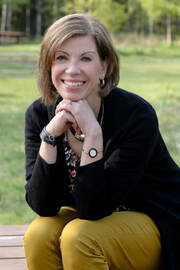
The makeover included new clothes and a haircut and even a renovation for his church’s community centre, part of which he needed to use for a temporary residence. More important than these superficial changes, it also included a conversation about his confidence, about how he wanted to be the leader his church needed and how he felt he was coming up short.
During a conversation with Bobby, Noah was reminded to make sure the ‘people in the back rows’ could hear his message. This wisdom had nothing to do with learning how to project his voice, or researching better sound equipment; it was about him learning to show up in his own life with the confidence he often reserved for those in the front rows at church.
I’ve been pondering back rows all week.
Usually when I hear a sentence that really makes me think in new way, I try to think about its application to my own life. I don’t like to think of my life having front and back rows. I don’t like to think I reserve the best of myself for certain people and moments, and for the rest, for the back rows, I give lesser of myself. I’ve tried to be an observer of myself to notice how this plays out for me. I’ve even spent time thinking about what I consider to be front row behaviour and whether I save this for my ‘front row people’.
My front row behaviour consists of the behaviour I use when I am at my best. Since I do quite a bit of public speaking and facilitating, I am conscious that the folks sitting nearest to me (I often facilitate using a circle formation) in any presentation are able to see me in clear focus. They could easily notice a stain on my clothing or spinach in my teeth. It is for these people, I suppose, that I pay careful attention to the details of my appearance.
People who are sitting farther away from me, or those who may only glimpse me from a distance, would never notice such details. The question I posed for myself became, ‘If they can’t see the stain or spinach, does it matter?’
I contend, yes, it matters.
The spinach and stain of course are simply trivia. I try not to wear either of these with any regularity. The more important idea is thinking about who we deem important enough for us to show up as our best. How we look is not the issue. Looks are simply a side dish to the main course of who we are and how we are behaving.
When Bobby told the minister to make sure his message was heard in the back rows, I could picture the back rows of my life. In my life, back rows are small daily interactions with strangers. Back rows are my behaviours on bike paths; whether I slow down to pass others or aggressively ring my bell and blow by. Back rows are my tone of voice. Back rows are the effort I use to listen, especially when I am not quite as interested in the topic as the speaker. Back rows are how I treat those I love after a long tiring day. Back rows are the effort I put into presentations for small gatherings.
Back rows are any places I could possibly ‘get away with’ showing up as less than who I like to think I am when I stand in front of an important group, or take my place as the leader in a circle.
Jim and I love to go to see live theatre and live music. When we buy our tickets, we are always required to choose our seats and to pay accordingly. Seats closer to the front cost more money. Back row seats typically cost less. The theory is the sights and sounds are less clear, the further away from the stage we are. In the physical sense, this is absolutely true. It’s hard to see spinach in between teeth from the back row. However, even in cases where we have sat right in the very back row, I have appreciated the effort theatre groups go to, to make sure the experience is equally satisfying no matter what the row. Sometimes it involves an intricate sound system. Sometimes additional screens are installed for more close-up viewing. Every effort is made to ensure the same message is delivered to, and received by, every single member of the audience.
Whether we like it or not, each of us too, has an audience in our life.
I would like to think the people in the back rows of my life see the same person and experience the same feelings from me as the people in the front row. Maybe I just need to add more space to my front rows.
My inquiry for you this week is, ‘Back row or front row?’
Elizabeth is a certified professional Leadership Coach, and the owner of Critchley Coaching. She is the founder and president of the Canadian charity, RDL Building Hope Society. She works with corporations, non-profits and the public sector, providing leadership coaching. She creates and facilitates custom workshops for all sizes of groups. She has particular expertise in facilitating Strategic Plans for organizations. Contact Elizabeth to learn how to create more front rows.


 RSS Feed
RSS Feed